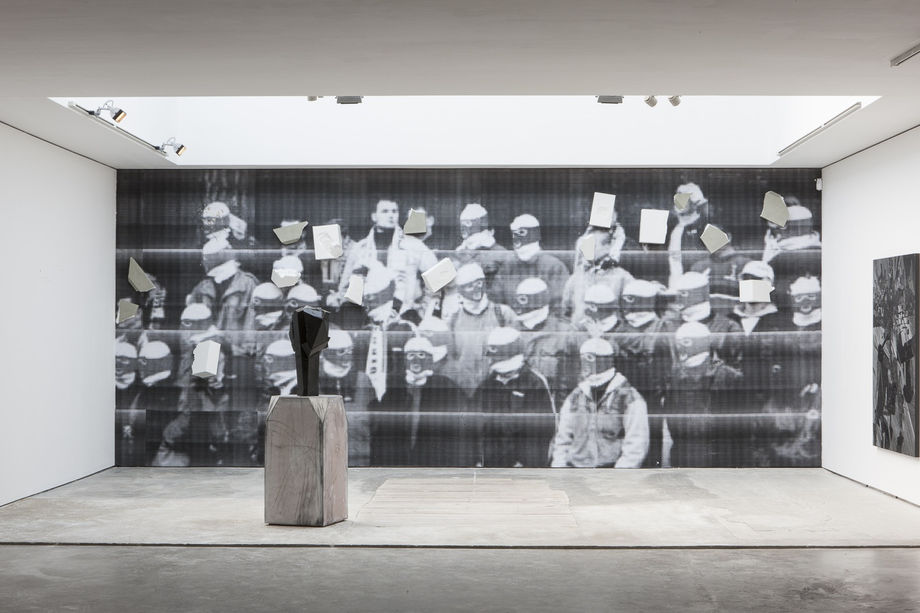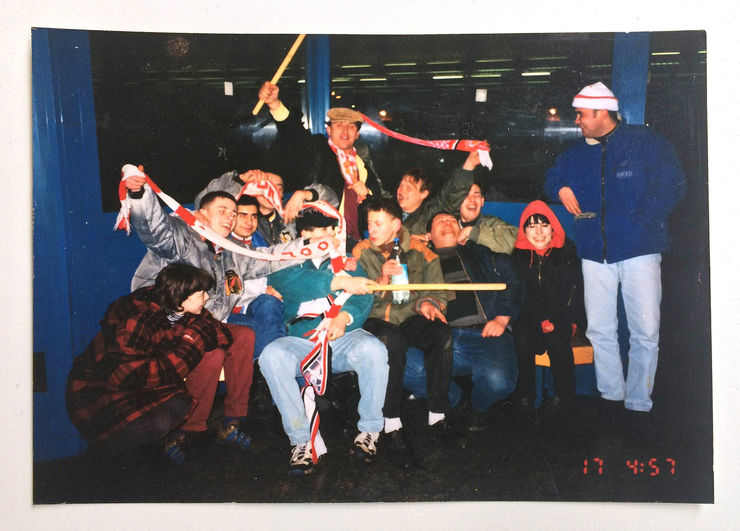Marcin Dudek: we stumbled as we clambered
Private View | Wednesday 29th April, 6-8pm
Marcin Dudek’s second solo exhibition at Edel Assanti, we stumbled as we clambered, is an exploration of the politics of identity and space, conflating hooliganism, memory and the architecture of social experience. An autobiographical dialogue with Dudek’s own past underpins this discussion, taking his own experiences of violent football subculture and post-Soviet societal climate as a point of departure.
The prelude and epilogue of the exhibition is a diminutive, non-descript photograph of youthful members of the Cracovia football fan club, including Dudek himself. The spectre of the artist’s past takes physical form through a self-portrait appropriating the artist’s old orange fan club jacket and balaclava. A blown up photograph of the group dominates the back wall of the gallery, depicting them moments before the outbreak of a violent stadium encounter. Abstract sculptural forms obstruct the image, censoring the individuals’ faces. Raw individual aggression is weighed against the more severe nature of calculated political violence: Dudek’s subconscious wrestling with his own memories is played out alongside a lingering reminder of the eradication of dissidents’ faces from family photo albums during the Soviet purges.
In the middle of the room we encounter a plaster sculpture portraying a friend of the artist and fellow fan club member tragically killed in their youth. The sculpture, rendered by hand, emits the sound of a 3D printer at work. The form recalls the modernist building blocks of the Krakow housing estates whose monotonous repetition is a recurrent oppositional influence in Dudek’s practice. Here again, a causal link between social architecture, identity and violent ideology is implied.
The large-scale collages, made from black PVC tape and vinyl, debunk the uniformity of the modernist architectural project through explosive geometric compositions. Referring to his instinctive creative process as “therapy”, this intricate artistic language seems to summon a historical moment in which abstraction was deployed as a politically subversive force.
After leaving Poland aged 21, Marcin Dudek studied at the University of Art Mozarteum, Salzburg, and Central Saint Martins, London, graduating in 2005 and 2007 respectively. Dudek exhibits internationally at venues including Moscow Museum of Modern Art, Kunstlerhaus, Salzburg, the Arad Art Museum and the Goethe Institute, Kiev. His installation “The Cathedral of Human Labor”, 2013, in on permanent view at the Verbeke Foundation in Antwerp.






